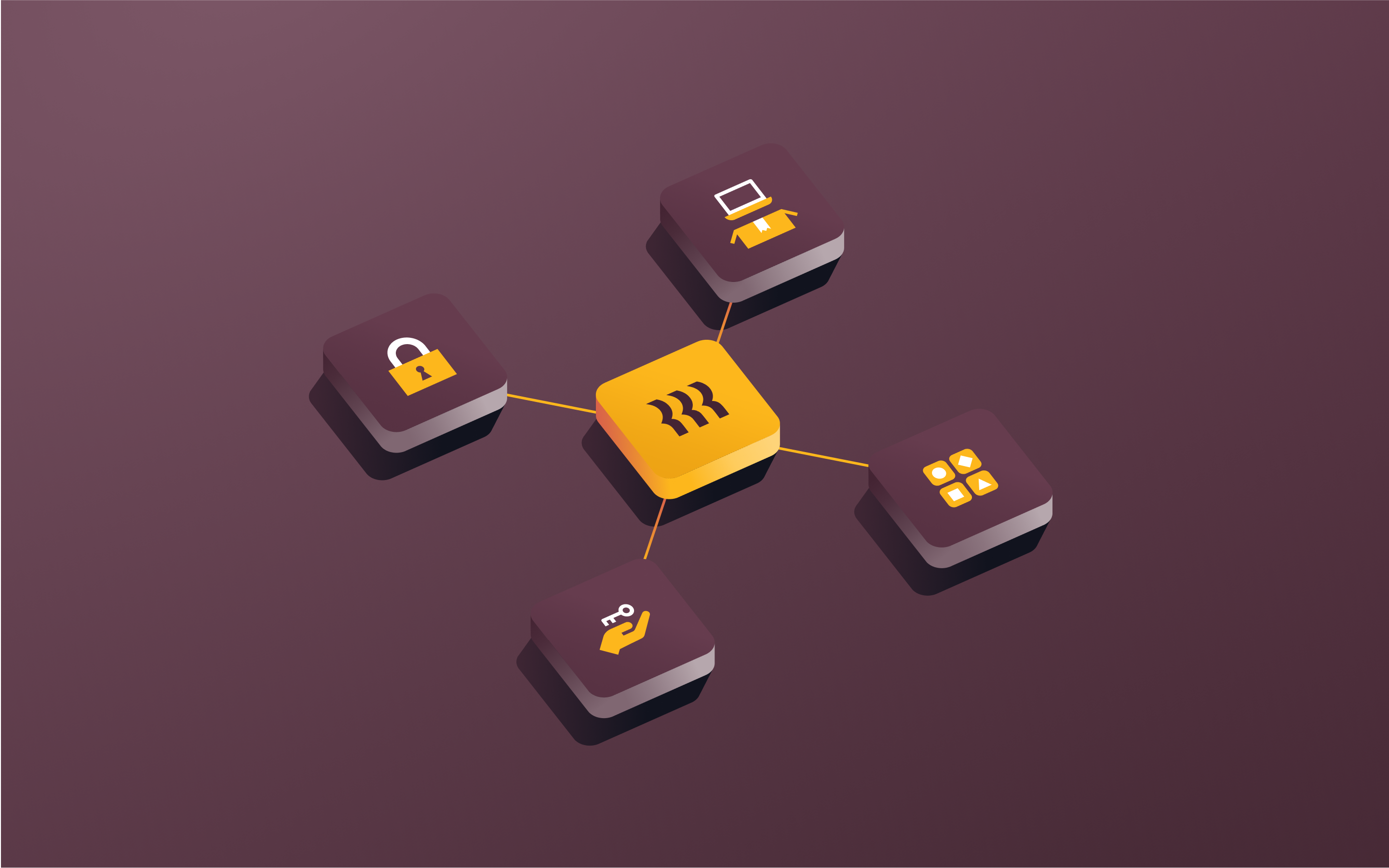Electronic vs wire transfer: Key differences

If you've ever needed to send money overseas to pay a contractor, dealt with last-minute vendor payments, or managed international payroll, you know the frustration of navigating different transfer options.
Should you use a standard bank transfer and save on fees, but wait several days for the money to arrive? Or pay the premium for a wire transfer to get the funds there immediately? Make the wrong choice, and you could face angry vendors, delayed projects, or employees who can't pay their rent on time.
For HR and finance managers overseeing global teams, these are regular challenges that directly impact business operations. When your company has team members across multiple countries, each payment involves navigating different banking systems, currency conversions, compliance requirements, and transfer methods.
Understanding the differences between electronic transfers and wire transfers, and knowing exactly when to use each, can save your company time, money, and headaches. Let's break down what these transfer methods are, how they work, and when to use each one.
What is an electronic transfer?
Electronic transfers, often called electronic funds transfers (EFTs), are digital movements of money between accounts without paper checks or cash.
Think of EFT as the umbrella term covering virtually any transfer that happens electronically, from paying with your debit card at a coffee shop to setting up direct deposit for employee paychecks.
The beauty of electronic transfers is their versatility. They work through various platforms like your bank's mobile app, online banking portals, or payment services. Whenever money moves digitally from one account to another, you're likely dealing with some form of electronic transfer.
How does electronic funds transfer work?
The process to transfer funds electronically is straightforward:
- You authorize the transfer using credentials like your PIN, password, or digital signature
- Your bank communicates with the recipient's bank through secure networks
- The funds are verified and processed
- The money is debited from your account and credited to the recipient's account
Unlike cash transactions that happen instantly, EFTs typically take 1-3 business days to complete as they pass through clearing systems that verify and process batches of transactions.
Types of EFTs
Several types of electronic transfers serve different needs:
ACH transfers
These ACH payments handle most recurring transactions and direct deposits. The automated clearing house (ACH) processes these transfers in batches throughout the day, making them economical but not immediate. This is what most companies use for payroll direct deposits.
Direct deposit
Direct deposit is a form of ACH transfer specifically for depositing funds directly into someone's account, such as employee wages, tax refunds, or government benefits. For employers, direct deposit eliminates the costs of printing and distributing paper checks while giving employees faster access to their earnings.
Debit card transactions
These are immediate electronic transfers that move money from your account to a merchant when you swipe, tap, or enter your card details. These transfers combine the convenience of credit cards with the budgeting benefits of spending only money you actually have in your account.
Online bill payments
They allow you to schedule one-time or recurring payments through your bank's online platform or a biller's website, eliminating the need for paper checks. These systems often let you schedule payments in advance, helping with cash flow management and ensuring bills are paid on time.
What is a wire transfer?
Wire transfers are a specific type of electronic transfer designed for moving large sums quickly and securely between bank accounts. They operate on dedicated networks like SWIFT (Society for worldwide interbank financial telecommunication) for international transfers and Fedwire for domestic U.S. transfers.
The key distinction of wire transfers is their direct nature. They move funds directly from one bank account to another without passing through a clearing house. Think of them as the express lane of money movement.
For businesses dealing with time-sensitive transactions or international payments, wire transfers often become the default choice despite their higher costs. The certainty and speed they provide can outweigh their expense in many business contexts.
How do wire transfers work?
The wire transfer process requires more direct involvement:
- The sender initiates the transfer at their bank (either in person or through online banking).
- They provide detailed information about the recipient, including their bank account number and routing details.
- Both banks verify the transaction and the sender's available funds.
- The sending bank transmits payment instructions to the receiving bank.
- The receiving bank deposits the funds in the recipient's account.
Wire transfers typically complete within hours domestically and 1-2 business days internationally, significantly faster than standard EFTs. This speed comes from the direct, bank-to-bank communication and the priority processing these transfers receive. Unlike ACH transfers that get batched together, wire transfers move individually and receive immediate attention from banking staff, explaining their higher fees.
Types of wire transfers
Wire transfers come in a two main varieties:
Domestic wire transfers
These transfers move money between banks within the same country. These generally complete within hours and typically cost between $15-30 per transfer. For businesses making time-sensitive payments, like closing on commercial property or paying a rush vendor fee, domestic wires provide guaranteed same-day processing.
International wire transfers
International wire transfers cross borders using the SWIFT network, which connects over 11,000 financial institutions worldwide. These take longer (typically 1-4 business days) and cost more due to currency conversion and international processing. Fees generally range from $20-50 per transfer, with potential additional charges for currency conversion.
Differences between electronic transfer and wire transfer
While all wire transfers are electronic transfers, not all electronic transfers are wire transfers. Here are the key differences that matter when deciding which to use:
Wire transfers
Standards EFTs
Processing speed
Typically complete within hours domestically and 1-2 days internationally
Take 1-3 business days to process as they move through clearing houses in batches
Cost
More expensive, ranging from $15-50 for domestic and $20-50 for international transfers
Generally more affordable, with many ACH transfers being free or costing under $3
Security and cancellation
Happen quickly and generally cannot be recalled once sent, making them nearly irreversible. This immediacy creates both security benefits and risks.
Typically allow for cancellation during processing, providing more flexibility but slightly less security for recipients waiting for guaranteed funds
Transaction limits
Usually have higher maximum limits (often $100,000+ per transaction), making them suitable for large purchases or transfers
Frequently have lower daily and per-transaction limits, though these vary by bank and account type
Typical use cases
- High-value transactions
- Time-sensitive payments
- International business deals
- Real estate closings
- Mergers and acquisitions
- Regular payroll processing
- Recurring vendor payments
- Subscription payments
- Everyday banking
- Routine business operations
How are EFTs and wire transfers similar?
Despite their differences, these transfer methods share important characteristics:
- Both are electronic: Neither involves physical cash or paper checks
- Both require bank involvement: Financial institutions facilitate both types of transfers
- Both work domestically and internationally: Though with different processes and costs
- Both are more secure than cash or checks: They create digital records and require authentication
- Both involve some fees: Though wire transfers generally cost more
Which is better: EFT vs. wire transfer?
There's no universal "better" option—the right choice depends on your specific needs:
Cost considerations
If budget matters most, standard EFTs like ACH transfers typically win due to their lower fees. For a company processing hundreds of payments monthly, the savings from using ACH instead of wires can be substantial.
Urgency
When time matters more than cost, wire transfers deliver. If you need to send an urgent international vendor payment or make a time-sensitive deposit, the higher cost of a wire transfer may be justified.
Security levels
For high-value transactions where you need guaranteed funds and maximum security, wire transfers offer more immediate verification. For routine transactions where slight delays pose no issues, EFTs provide sufficient security at a lower cost.
Transaction size limits
Larger transactions often require wire transfers due to the daily limits on many EFT methods. If you're transferring six figures, wires are typically the only viable electronic option.
The best approach is often to use both methods strategically: wire transfers for urgent, high-value situations and EFTs for regular, recurring transactions.
Are there other options for transferring money internationally?
Beyond traditional EFTs and wire transfers, businesses have several alternatives for international money movement:
- Payment platforms like PayPal and Wise offer international transfers that often cost less than bank wires while providing decent speeds
- Digital wallets such as Apple Pay and Google Pay are expanding their international capabilities
- Cryptocurrency transfers provide near-instant settlement across borders, though with volatility risks
- Money orders and cash deposits remain options in some regions where banking infrastructure is limited
Each alternative comes with its own balance of speed, cost, and accessibility considerations.
Pay employees anywhere the right way with Rippling
For businesses with international team members, managing global payroll across different countries and currencies can quickly become overwhelming. Rippling's international payroll software simplifies this process by consolidating global payroll into one unified platform.
Instead of managing separate payroll systems for each country, Rippling lets you pay employees worldwide from a single system that handles multiple currencies and countries.
The platform automatically calculates and files payroll taxes globally, ensuring compliance with local tax authorities. It also manages compliance with local employment laws through built-in automation that flags risks and enforces country-specific requirements.
This unified approach means HR and finance teams can:
- Run payroll for all locations from one system
- Process payments days before payday rather than weeks in advance
- Reduce manual data entry and administrative overhead
- Maintain compliance across multiple jurisdictions automatically
- Get real-time visibility into global payroll costs and breakdowns
Rather than juggling multiple international payroll providers, currency conversion services, and compliance systems, Rippling consolidates these functions into one platform. For companies employing international talent, this can significantly reduce the operational complexity of global workforce management.
Electronic vs. wire transfer FAQs
Is an electronic check the same as a wire transfer?
No. An electronic check (e-check) is a type of EFT that works like a digital version of a paper check, typically processing through the ACH network over 1-3 business days. Wire transfers move directly between banks without the ACH clearinghouse, typically completing within hours but at a higher cost.
Is PayPal a wire or electronic transfer?
PayPal is neither a traditional wire transfer nor a standard EFT. It's a payment platform that uses its own proprietary network to move money electronically. While the end result (digital money movement) is similar to other electronic money transfers, PayPal operates outside the banking system's wire and ACH networks.
Is a wire considered an electronic payment?
Yes, all wire transfers are electronic payments. Wire transfers represent a specific type of electronic payment that moves directly between banks without intermediary clearinghouses, offering faster processing at higher cost than many other electronic payment methods.
This blog is based on information available to Rippling as of June 27, 2025.
Disclaimer: Rippling and its affiliates do not provide tax, accounting, or legal advice. This material has been prepared for informational purposes only, and is not intended to provide or be relied on for tax, accounting, or legal advice. You should consult your own tax, accounting, and legal advisors before engaging in any related activities or transactions.






